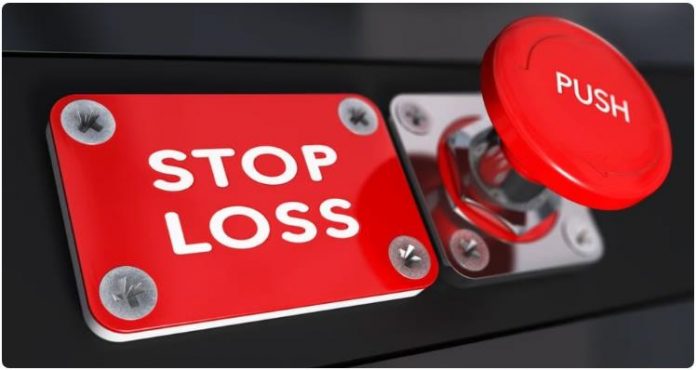Stop Loss rtune is an exchanging apparatus intended to restrict the most extreme loss of exchange via naturally selling resources once the market cost arrives at a predetermined worth. There are various sorts of stop misfortune that can be utilized in various situations relying upon the crypto market circumstance. It can at times be hard to stay away from misfortune because of the numerous conceivable market results, however, stop misfortune can be useful in any event, for new and unpracticed brokers.
When is it utilized?
Not at all like a breaking point request, which means to benefit from the latest things, a cryptographic money dealer will utilize a stop misfortune request to restrict expected misfortunes to something they can take on.
This isn’t just a stage towards augmenting benefits, it likewise grows the merchant’s possibilities for planning, by expanding their control of the exchange’s gamble factor. To stop misfortune to be utilized really, the dealer actually needs to foresee how the market will act and design the stop misfortune in like manner any other way it may neglect to forestall misfortune as well as increase it. When the broker has thought of how the market will act, they should pick both the worth and sort of stop misfortune request they wish to utilize.
Stop Loss rtune types
Full
Sells all crypto resources when set off. This is valuable in a steady market with abrupt startling cost changes so that any cost drop is anticipated to stay low. While a flood reinforcement will mean the broker misses out on possible benefits, they will have stayed away from misfortune if the cost of crypto stays low.
Along these lines, while setting a full stop misfortune, the broker should think about the gamble and compensation of the two situations.
Incomplete
Exchanges a predetermined extent of the computerized resources when set off. This can be valuable in an exceptionally unstable market (for example digital currency market) to guarantee the merchant actually has a few resources remaining on the off chance that the cost drops before a flood. Notwithstanding, it leaves the broker with possibly undesirable resources, and on the off chance that the cost stays at a low level, they will stay at a loss. This can be powerful as an instrument of harm control in a profoundly unpredictable market, yet it can’t ensure the security of the broker’s assets. It should hence be utilized with the full arrangement that the dangers stay to be high.
Following stop misfortune
The stop misfortune worth will change as per the crypto resource’s cost variances. The merchant sets the following distance, which is the distinction between the current resource cost and the stop misfortune esteem. On the off chance that the cost of digital money rises, the stop misfortune worth will ascend with it. At the point when the cost drops, the stop misfortune worth won’t change and a stop misfortune request will be set off assuming the expressed worth is reached.
This enjoys an upper hand over set stop misfortune orders since it permits the broker to cover the most extreme misfortune paying little heed to how far the patterns have gone in support of themselves. Furthermore, this liberates the dealer from having to physically change stop misfortune in light of the market. Following stop misfortune might turn into responsibility in a consistently rising business sector, as solid rising patterns regularly drop prior to proceeding to develop. A low following distance could in this way bring about the resources being exchanged before the cost has arrived at its maximum cutoff.
Gambles
Assuming full stop misfortune orders are set too high, the dealer’s chances of missing out on a cost flood past the stop misfortune esteem. This is almost certain in an unstable market.
The merchant gambles missing out assuming that the stop misfortune esteem is too low so the cost drop doesn’t set off however at that point hits a consistent pattern subsequent to dropping. Assuming the stop misfortune is set off, the merchant will lose more with a low stop misfortune esteem than with a high one, in spite of the fact that it might have been a superior decision on the off chance that the dealer accepted the market would return up after a drop that didn’t set off stop misfortune.
While apparently more secure in a steady market, following stop misfortune is a likely obligation in solid vertical trends. Partial stop misfortune is of little use in a steady market yet can be of extraordinary assistance while exchanging with exceptionally unstable new coins. All things considered, all chance accompanies unfortunate decisions in regards to the kind and worth of stop misfortune because of mistaken market investigation similar as any exchanging apparatus that can be harming on the off chance that not utilized as expected.
Amateur strategy?
Some accept that stopping misfortune is a device utilized principally (and insufficiently) by unpracticed merchants a conviction that has some reality. Stop misfortune can for sure be deceiving for new merchants since it’s occasionally viewed as a safeguard as opposed to the complex and painstakingly arranged insurance contract it ought to be when utilized fittingly. However, in the possession of an accomplished broker who’s great at market investigation, stopping misfortune can be an important apparatus that sets aside both time and cash. Utilizing it haphazardly, nonetheless, without understanding the reason and utilization of each sort of stop misfortune will cause harm. All things considered, unpracticed merchants working inside their profundity in stable business sectors can make the same amount of purpose out of it, inasmuch as they stick to methodologies they see well and deal with their resources shrewdly. It does not shock anyone that exchanging in a profoundly unstable market is more troublesome and has a lower achievement rate than exchanging with somewhat stable coins. Endeavors at harm control through stop misfortune (halfway for this situation) will be more troublesome and less fruitful, yet this is not a great explanation not to attempt it assuming that a merchant is certain about their capacities.


































